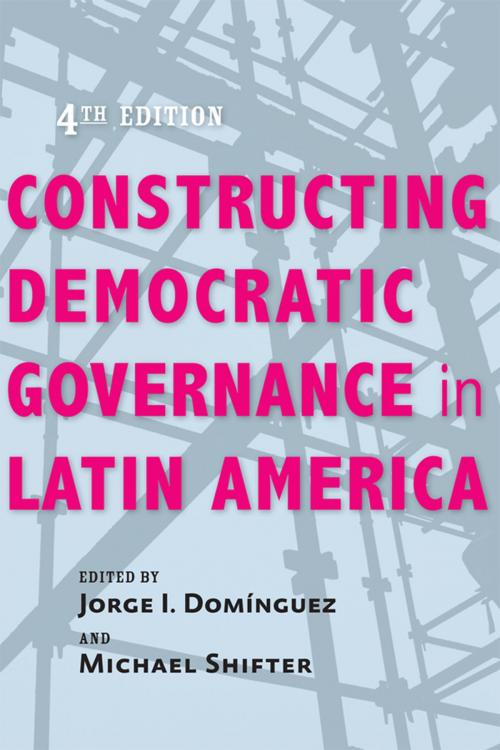Constructing Democratic Governance in Latin America
Nonfiction, History, Americas, Latin America, Social & Cultural Studies, Political Science, International, Foreign Legal Systems| Author: | ISBN: | 9781421409801 | |
| Publisher: | Johns Hopkins University Press | Publication: | July 31, 2013 |
| Imprint: | Language: | English |
| Author: | |
| ISBN: | 9781421409801 |
| Publisher: | Johns Hopkins University Press |
| Publication: | July 31, 2013 |
| Imprint: | |
| Language: | English |
After more than a century of assorted dictatorships and innumerable fiscal crises, the majority of Latin America's states are governed today by constitutional democratic regimes. Some analysts and scholars argue that Latin America weathered the 2008 fiscal crisis much better than the United States. How did this happen? Jorge I. Domínguez and Michael Shifter asked area specialists to examine the electoral and governance factors that shed light on this transformation and the region's prospects. They gather their findings in the fourth edition of Constructing Democratic Governance in Latin America.
This new edition is completely updated. Part I is thematic, covering issues of media, constitutionalism, the commodities boom, and fiscal management vis-à-vis governance. Part II focuses on eight important countries in the region—Argentina, Brazil, Bolivia, Chile, Colombia, Mexico, Peru, and Venezuela.
Already widely used in courses, Constructing Democratic Governance in Latin America will continue to interest students of Latin American politics, democratization studies, and comparative politics as well as policymakers.
After more than a century of assorted dictatorships and innumerable fiscal crises, the majority of Latin America's states are governed today by constitutional democratic regimes. Some analysts and scholars argue that Latin America weathered the 2008 fiscal crisis much better than the United States. How did this happen? Jorge I. Domínguez and Michael Shifter asked area specialists to examine the electoral and governance factors that shed light on this transformation and the region's prospects. They gather their findings in the fourth edition of Constructing Democratic Governance in Latin America.
This new edition is completely updated. Part I is thematic, covering issues of media, constitutionalism, the commodities boom, and fiscal management vis-à-vis governance. Part II focuses on eight important countries in the region—Argentina, Brazil, Bolivia, Chile, Colombia, Mexico, Peru, and Venezuela.
Already widely used in courses, Constructing Democratic Governance in Latin America will continue to interest students of Latin American politics, democratization studies, and comparative politics as well as policymakers.















